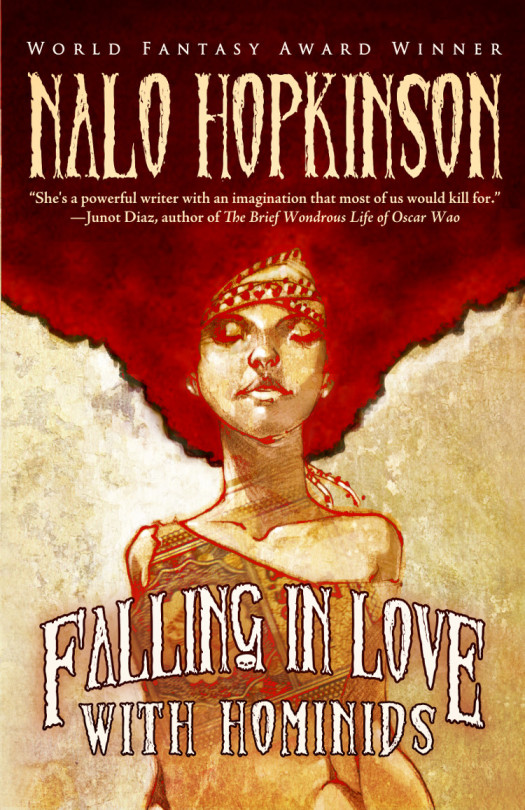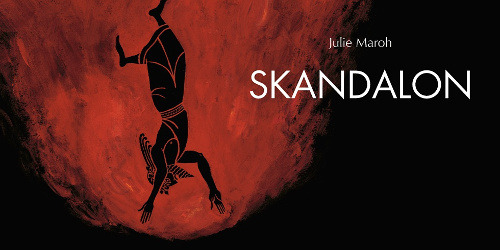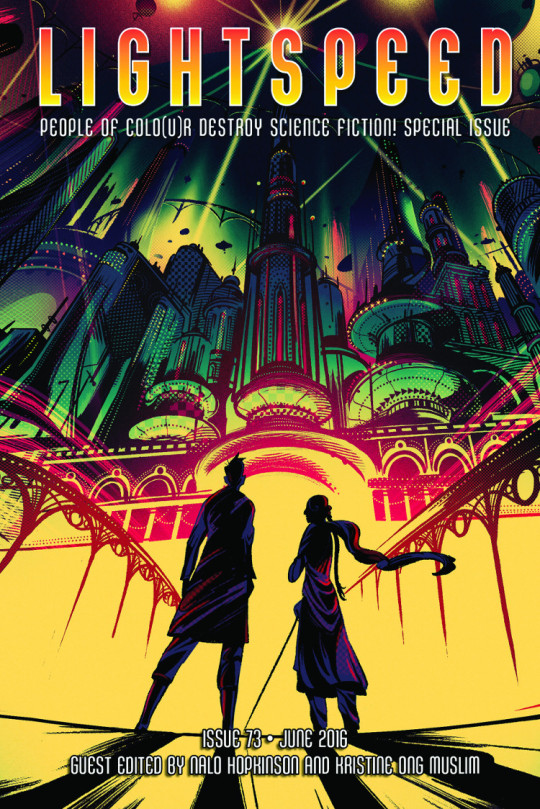Nalo Hopkinson writes from the perspective of people whose stories don’t get told

Photo by David Findlay
Debra Martens writes about Nalo Hopkinson’s keynote address for the 2016 Canadian Writers’ Summit.
During her keynote address of June 18, Hopkinson talked about how North American culture values mimetic fiction over science fiction, fantasy, or speculative fiction. And that it shouldn’t. “Stories needn’t be factual in order to be true.” What stories can do is explain the world concisely. People tell themselves stories from early childhood onward: “Human beings understand the world through narrative.” If fiction moves between past and present, why shouldn’t it also move into the future, she asked. “Why should a time-based art limit itself to the past and present?”
More importantly, why is fiction set in the future not considered literature? It is hard to imagine that an author with nine published books to her name, and the editor of at least four collections, would have to justify her literary form. Yet she has. As she told us ruefully, “I’ve had people try to liberate me from genre shame.”

I found some of the stories in FALLING IN LOVE WITH HOMINIDS grim and discomfiting. Just as I was wondering if I could ask what had happened to the hope in fantasy, someone else in the audience asked if social justice has a role to play in scifi or fantasy. Yes, in short. “I try to write from the perspective of people whose stories don’t get told.” One of the things speculative literature can do is look, concisely, at the world we are building.
For CANADIAN LITERATURE, Libe García Zarranz reviews Nalo Hopkinson’s FALLING IN LOVE WITH HOMINIDS and Julie Maroh’s SKANDALON.
“It was the best of times, it was the worst of times.” Charles Dickens’ premonitory words, written almost two centuries ago, seem to accurately describe the turbulent dystopian, post-apocalyptic, and perhaps posthuman worlds depicted by contemporary writers Nalo Hopkinson and Julie Maroh. Combining stories published in the last fifteen years with new material, Hopkinson’s collection FALLING IN LOVE WITH HOMINIDS (2015) brings fresh flavours into the heterogeneous genre of black feminist fantasy and speculative fiction. The suggestive title of the collection, borrowed from a ballad by sci-fi writer Cordwainer Smith, entices the reader from the start by anticipating some of the common themes in the stories: the complexity of affective relations; the limitations of the category of the human; the possibilities offered by posthuman bodies and communities; and the creation of an alternative ethics across species.

In the words of Hopkinson, “We’re all on the same spinning ball of dirt, trying to live as best we can.” Our challenge then in this age of global crisis would be to figure out sustainable ways to rethink this “we” in order to generate equitable forms of affective, ethical, and social justice. In this sense, Nalo Hopkinson and Julie Maroh’s passionate fictions are an excellent starting point.
PEOPLE OF COLO(U)R DESTROY SCIENCE FICTION!, a special issue of LIGHTSPEED with guest editors Nalo Hopkinson and Kristine Ong Muslim is now available.
PEOPLE OF COLO(U)R DESTROY SCIENCE FICTION! special issue exists to relieve a brokenness in the genre that’s been enabled time and time again by favoring certain voices and portrayals of particular characters. Here we bring together a team of POC writers and editors from around the globe to present science fiction that explores the nuances of culture, race, and history. This is science fiction for our present time, but also—most of all—for our future.

PEOPLE OF COLO(U)R DESTROY SCIENCE FICTION! is 100% written and edited by people of color, and is lead by guest editors Nalo Hopkinson and Kristine Ong Muslim, with editorial contributions from Nisi Shawl, Grace L. Dillon, Berit Ellingsen, Arley Sorg, and Sunil Patel. It features ten original, never-before-published short stories, plus ten original flash fiction stories, by writers such as Steven Barnes, Karin Lowachee, Sofia Samatar, Terence Taylor, Caroline M. Yoachim, and more. All that, plus five classic reprints, by the likes of Samuel R. Delany and Octavia E. Butler; an array of nonfiction articles, interviews, and book reviews; and more than two dozen personal essays from people of colo(u)r discussing their experiences as readers and writers of science fiction.
For more information on FALLING IN LOVE WITH HOMINIDS, visit the Tachyon page.
Cover art by Chuma Hill
Design by Elizabeth Story
